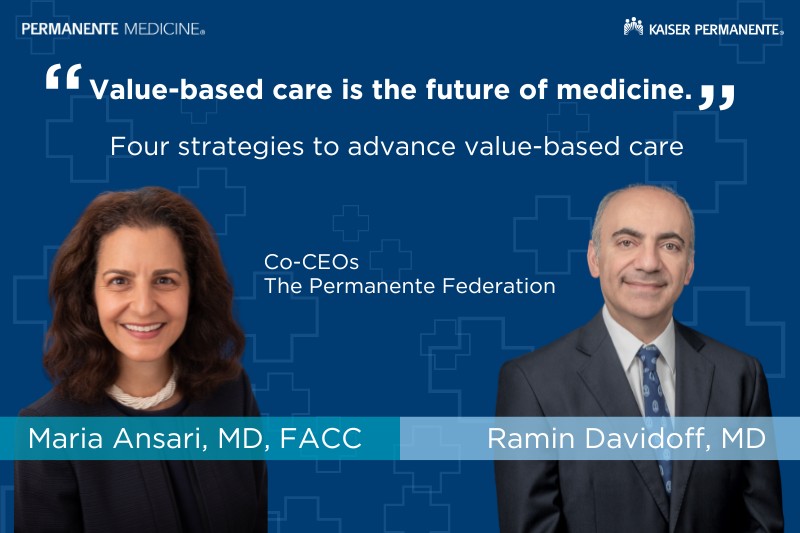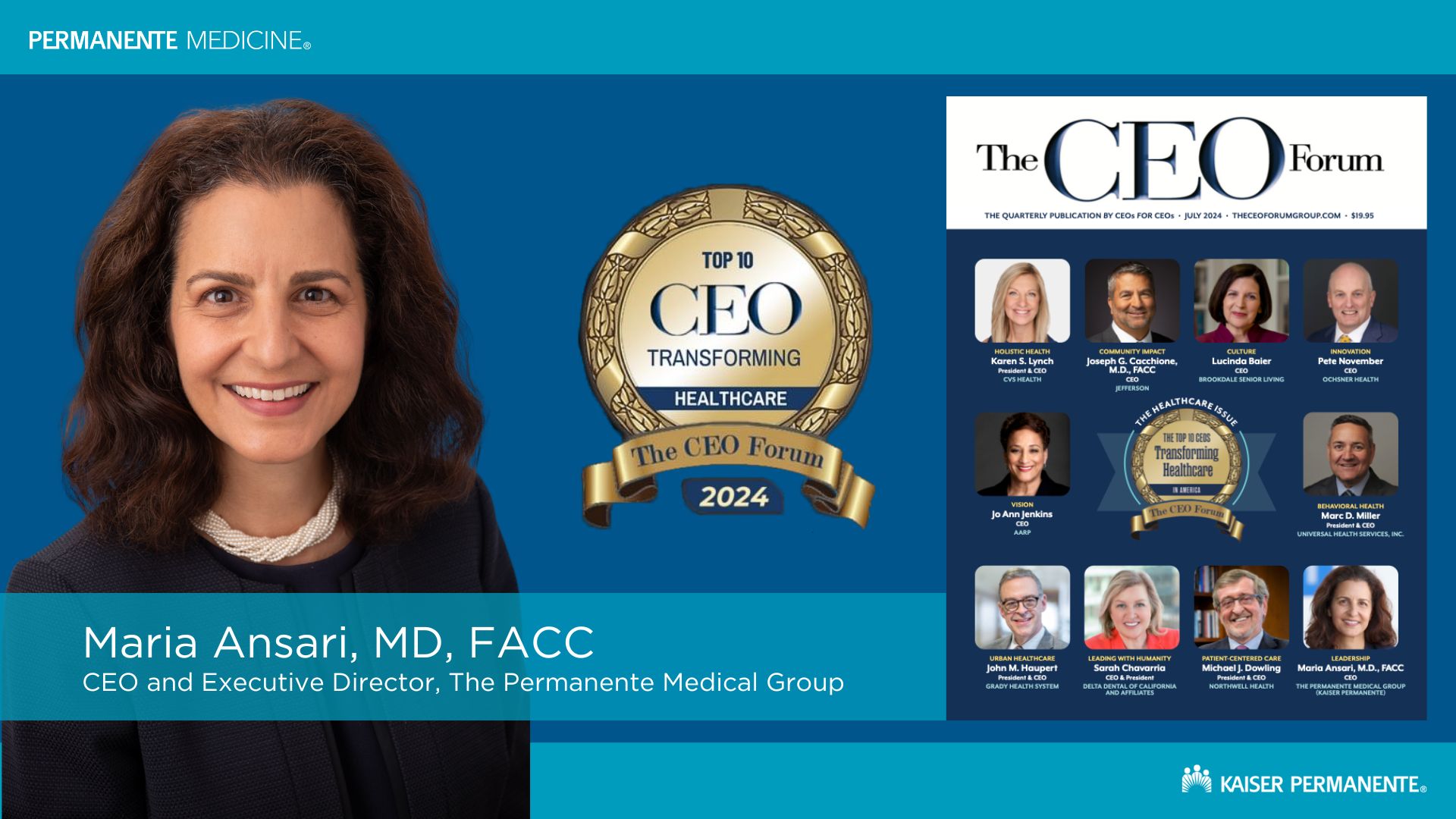In The Permanente Journal, an expert panel discussed how artificial intelligence can supercharge innovation within health care.
Physician leaders share innovations in health equity, AI at thINc360

Permanente physician leaders discussed innovations in AI (artificial intelligence), health equity, maternal health, social determinants of health, and Kaiser Permanente’s leadership in delivering value-based care in various panels at the recent thINc360 – The Healthcare Innovation Conference in Washington D.C.
A common thread linking these topics was how physicians, health plans, health care companies, researchers, patients, government, and others can collaborate to close care gaps, improve care quality, contain costs, and advance the delivery of value-based care.
In the session “Keeping it Real: Where are We Today with Value-Driven, Impactful Healthcare Transformation?” Shital Desai, MD, physician in chief for the District of Columbia and suburban Maryland with Mid-Atlantic Permanente Medical Group, discussed how Kaiser Permanente has focused on improving care delivery and driving better outcomes for patients.
“Since 1945, we’ve essentially been a value-based care delivery system where the focus is on outcomes for our patients,” Dr. Desai said. “For us, that starts with our primary care model, where we’re very focused on personalization of care for our patient population. All our patients are assigned to a primary care physician [PCP], where we really try to emphasize the PCP-matching, so that patients are developing that longitudinal relationship with their physician, and that has led to better health outcomes.”
Medical excellence: Read more about how Permanente physicians deliver value-based care

On another panel, “Multi-Stakeholder Efforts to Prioritize and Sustain Health Equity Initiatives that Prevent Health Risks and Significantly Improve Care,” Dr. Desai emphasized the importance of gathering data about social determinants of health as well as age, gender, race, and sexual orientation.
She said the organization collects social determinants data “at multiple touchpoints, starting with when they first enroll in Kaiser Permanente as their health care provider, where we will ask questions around income, housing stability, food insecurity, transportation needs, exercise, and mental health.”
During “Unlocking Opportunities Today to Shape the Future of Women’s Health,” Nancy Gin, MD, FACP, executive vice president for Quality and chief quality officer of The Permanente Federation, spoke about challenges in women’s and reproductive health, especially among women of color.
“We have three times the maternal mortality rate among Black women compared to white women, and that number just worsened dramatically during the COVID pandemic,” said Dr. Gin, who also serves as medical director of Quality and Clinical Analysis for the Southern California Permanente Medical Group.
“It’s not just Black women who are dying unnecessarily during childbirth and in the peripartum period,” Dr. Gin added, “Native Hawaiians, for instance, actually have the highest maternal mortality rate in the nation. It’s not a big population, but it’s a population that has so many of the challenges that many indigenous populations, including Native Americans, have — because of social structures, systemic racism, and the social issues that they face every single day.”
Related story: “Driving health care innovation in 10 steps”

Permanente Medical Groups in some regions are fully integrating disciplines like maternal-child health nurses, behavioral health clinicians, social workers, and case managers to create a comprehensive perinatal model that addresses the physical, mental, and social health needs of patients as a means of improving maternal health and reducing maternal mortality.
Ainsley MacLean, MD, chief medical information officer of the Mid-Atlantic Permanente Medical Group, shared her insights on artificial intelligence in health care on the “Cutting Through the Noise: Impactful Tech Adoption to Enable Proactive Versus Reactive Healthcare Delivery” panel.
Dr. MacLean said that one of the most promising areas of health care transformation at Kaiser Permanente is physician leadership in the AI space, which includes the use of machine learning, natural language processing, deep learning, and other AI-enabled tools to assist and improve the patient experience.
Within the Mid-Atlantic Permanente Medical Group, she added, “we have an AI Center of Excellence where we sit at the table with data scientists, our finance leaders, and others across [Permanente Medical Groups] in our Northern and Southern California regions as well. And we vet the newest AI technologies and decide, ‘Where is there an ROI for our patients, and where is there an ROI for our physicians, and how can we make their lives better?’”


